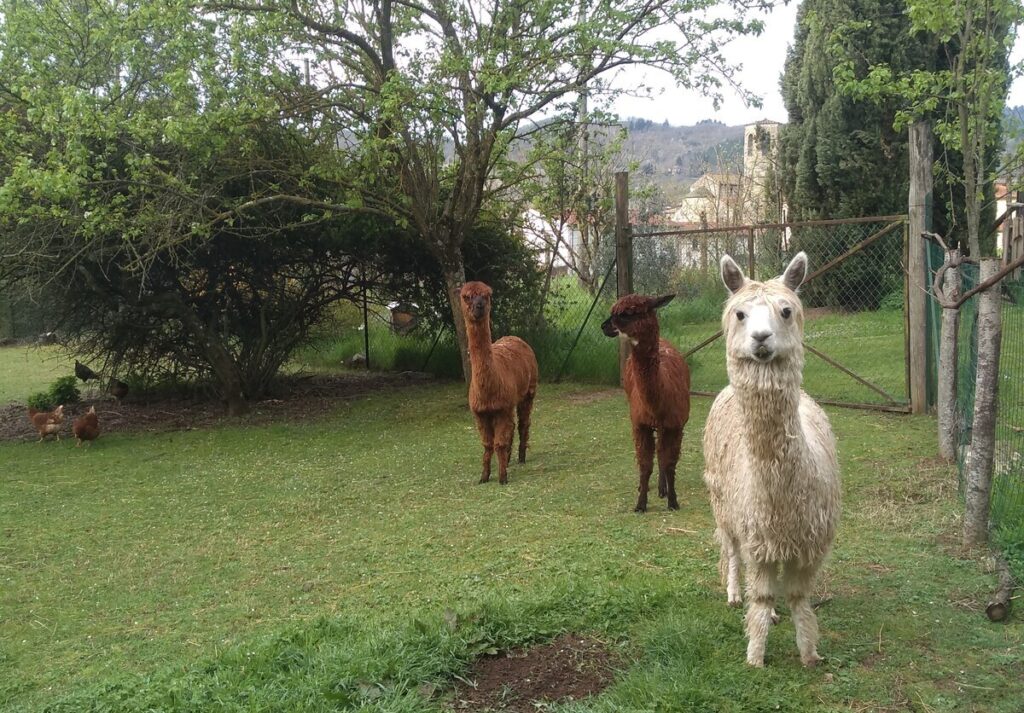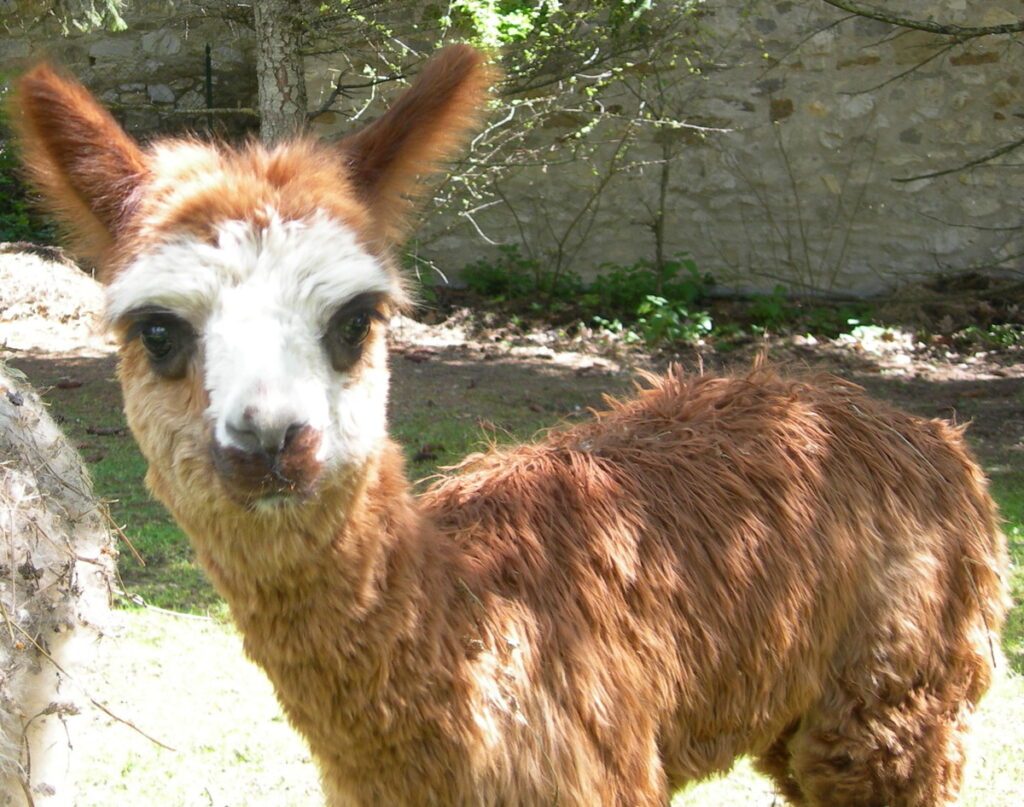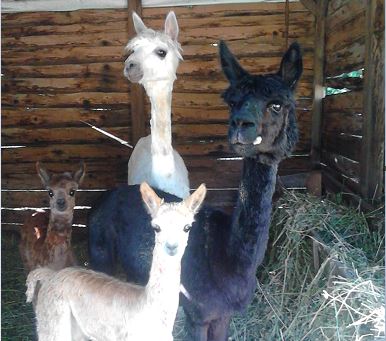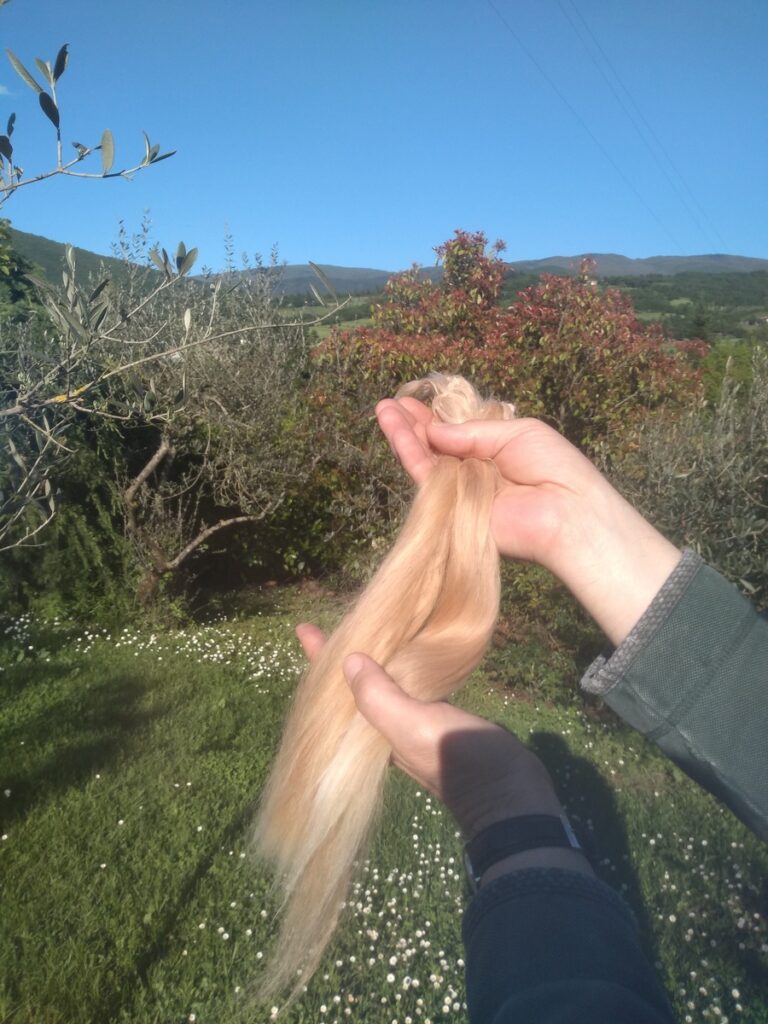
In our frantic, digitally-dominated daily lives, sometimes we need a reminder that there is wisdom in simplicity.
The challenge is to be open to learning from it.
Very few animals have mastered the art of living better than alpacas. They are experts in making the most of every day and enjoying simple basic things. It doesn’t take much to make an alpaca happy.
I’ve kept a small, soulful herd of Suri alpacas since 2013. They have enhanced my life beyond measure.
I chose Suris because I loved their supermodel look. Their fleece is silky and swings and shimmers when they move. Although kids (and a lot of adults) prefer the teddy-bear appeal of Huacaya alpacas, I love the Suris shyness and delicacy.
Because I believe we can learn a lot from Nature, I’ve put together seven powerful life lessons these gentle creatures can teach us.
Feel the Fear but Do It Anyway
My alpacas know every inch of their paddock and will immediately notice the tiniest change: a rake placed a different way against a fence, a jacket draped over a post, a fallen tree branch. These potentially alarming events are signalled by pricked ears and raised tails and a tentative approach, always in the company of others.
I once brought a football into their enclosure just to see what they’d do. It might as well have been an unexploded bomb. They circled it cautiously, sniffed it and then bolted away in all directions when I tried to kick it gently towards them.
But then they sidled back as curiosity conquered fear.
You see alpacas will always do stuff, even if it scares them stupid.
We should be more like that.
Practice Stoicism
An alpaca is definitely the Marcus Aurelius of the animal world. Their calm demeanour and “just get on with it” attitude is an example to us all. There is a reason for their behaviour of course. Because they are prey animals they will cover up any physical signs of perceived weakness that could make them easy to attack, such as pregnancy or illness. An alpaca is pregnant for 11 months, but you’d never know until the last few weeks.
I remember sending a photo of my Suri, Nicola, to her former owner, writing “I know you said she could never, ever get pregnant, but I think she looks fat in this photo. Could she be?”
“Dream on!” she wrote back.
Nicola’s baby was born the next day.

Alpacas are stoic and uncomplaining when ill and it is a sad truth that they are either well, or very sick with little in between. If an alpaca separates itself from the herd or lies down unexpectedly, it is often too late.
Now, I’m not for one moment suggesting you cover up or ignore your pregnancy or serious illness!
But there is a message here from alpacas to keep your chin up – keep calm and carry on, if you will – and only make a fuss when you really have something to complain about.
Fully Relax at the Drop of a Hat

On the second or third day I got the alpacas, I found all four splayed out on the ground on their sides. I gasped in horror and ran to get my sister who had come over for the alpacas’ arrival. “Well, that didn’t last long, did it?” she said with masterful understatement.
Then an ear flicked and a tail twitched. They weren’t dead, they were sunbathing!
Almost every alpaca owner will tell you stories of the fake death pose and how it still catches you out, even though you know they are just deeply asleep or totally chilled. I would say it’s just their little joke, except they are far too busy relaxing to even think about joking.
All they need is some sunshine, a patch of grass or hay, and they are off to dreamland.
This ability to completely relax at any time is a very underrated and useful skill. When I am very stressed I focus on my body and my breathing and try to channel that alpaca vibe.
Minus the sprawling in public part, obviously.
It’s More Fun with Friends

Herd animals like alpacas are miserable on their own. In fact, they say that the minimum number for them to feel safe and content is three. And that means three alpacas, not an alpaca and two chickens or something. They’re not like horses in this respect.
They do everything within sight of each other, and it calms them down to see their companions. One of mine, Asti, will cry in alarm if she mislays her friends for even a minute.
If a baby alpaca (called a cria) is under threat, the alpacas will form an outward-facing circle round it. If one of them spots danger (even if it isn’t really danger at all, like a kitten) they will stare at the potential predator, tail up, and may even cry out to alert the others.
Alpacas thrive in a group, relying on each other for warmth, help and companionship. Even if they bicker over food and grumble at each other, at heart it really is “All for one, and one for all.”
As a self-confessed loner, I know there is a lesson here for me. Much as I enjoy my own company, or just being with my lovely husband, there is value and strength in a strong network of like-minded friends.
And the best friends will come to your side, no matter what.
Tread Lightly
Alpacas literally leave a small footprint because they have padded feet and don’t ruin pasture by churning it into mud.
They have quite short tongues and only have bottom teeth, so when they graze they eat the tops only, leaving the bottom part of the grass to carry on growing, unlike sheep or goats.
Because of the harsh environment and poor pasture of the Andes, where they originate from, they have evolved to extract the maximum nutrients from the minimum amount of grass or hay and so only take what they need. They consume only 1.8% of their body weight in dry matter a day, compared to 2.5% for a sheep or goat.
Their fiber is sustainable, hypo allergenic and biodegradable as well.

In short alpacas are super eco-friendly and don’t exploit their environment.
I don’t need to spell out the lesson here.
There are many more examples of what alpacas can teach us. But lessons are only useful if you apply them.
So let us weave their teachings into our lives so that we become as strong, resilient and gentle as the beautiful creatures that inspired them.
